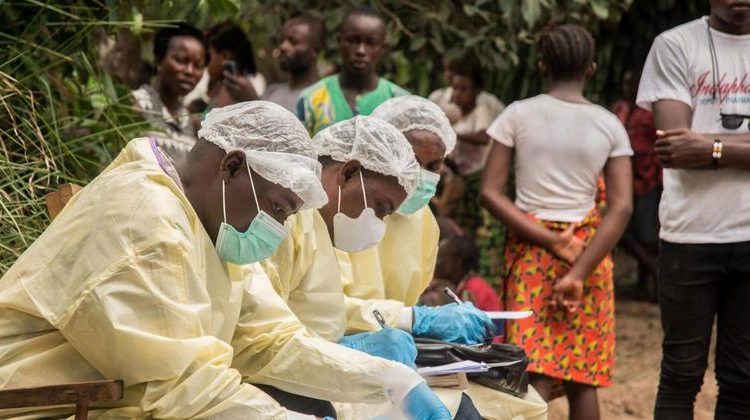As cholera continues to wreak havoc in the country, one of Malawi’s development partners, the European Union, has released an additional 1.5 million euro (about K1.5 billion) to be channeled through the World Health Organisation (WHO) for the cholera response in the country.
This package follows a fresh response appeal by the United Nations (UN) and other humanitarian partners to raise $45.3 million (about K46.93 billion) to assist four million people in Malawi hit hard by the cholera outbreak.
The additional funds were announced by EU Ambassador Rune Skinnebach during a press conference held in the capital Lilongwe yesterday wherein he said the bloc remains committed to working with the Malawi Government in strengthening preparedness for health crises and other emergencies considering the cyclone season, which may worsen the cholera situation.
He said: “We have entered the cyclone season and we all know very well how extreme weather events can have disastrous effects on the social and economic fabric of the country. They can exacerbate the current cholera crisis and we must be prepared.
“Though we know that cholera represents a recurring problem for Malawi, the magnitude of the current crisis, affecting a large part of the population and showing a very high fatality rate, calls for collective efforts from government and the international community,”
So far, EU has had three rounds of assistance before the disease was declared an emergency, rounds of assistance which were channeled through aid organisations participating in the international humanitarian coordination mechanisms in the country, including the Malawi Red Cross Society and UN agencies.
Said Skinnebach: “Three rounds of financial assistance have been announced so far: 100 000 euro [about K100 million] to the Red Cross mainly for prepositioning of non-food items; one million euro [about K1 billion] to the United Nations Children’s Fund [Unicef] to provide life-saving and Wash services to cholera affected communities to improve case management and reduce deaths: and 1.5 million euro [about K1.5 billion] to the WHO for procurement of essential supplies [Oral Rehydration Therapy-ORT] IV fluids, antibiotics, personal protective equipment [PPE] and logistics for safe burial to strengthen rapid response capabilities.”
The Ambassador further said that the EU Delegation has also mobilised 600 000 euro, of which 100 000 euro is directed to strengthening water, sanitation and hygiene (Wash) activities in schools that benefit from the EU-funded school feeding programme while the rest will support community sensitisation, zinc supplementation and water chlorination.
“The major cause of this fast-spreading cholera is limited access to clean water and sanitation facilities. This is why, in addition to the announced humanitarian funding and in response to the strategic objective of the flash appeal, the EU Delegation in Malawi has mobilised K130 million to reinforce Wash practices necessary for prevention and management of cholera outbreak in schools and communities in the south of the country,” he said.
He observed that to prevent cholera contamination, the most impactful interventions are in access to clean water and sanitation.
S kinnebach said : “Cholera is a preventable and treatable disease. It all starts at the community level, with sensitising people about the illness and reducing the stigma attached to it. Cholera has nothing to do with keeping oneself or one’s household clean.
“Improving communities access to clean water and safe sanitation structures would thus reduce to a great degree, the spread of the disease, which would in turn, reduce the need for emergency health interventions.”
According to statistics, at least 1 620 people have died from cholera and over 50 000 affected since the onset of the outbreak in March 2022.












